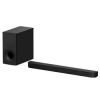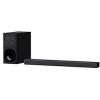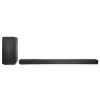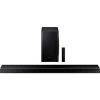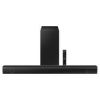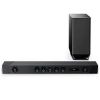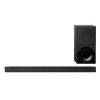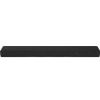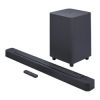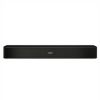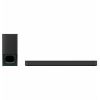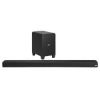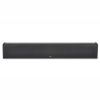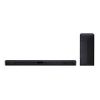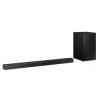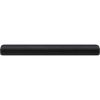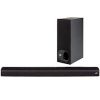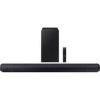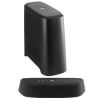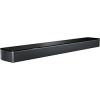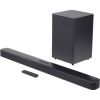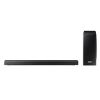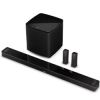JBL Bar Studio vs Samsung HW-Q60R review
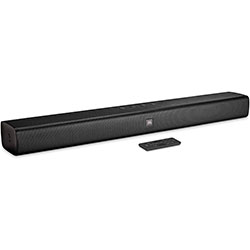
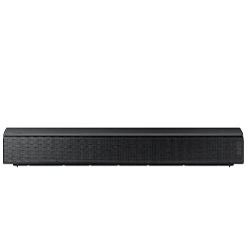
An affordable soundbar is always a good option to consider, so JBL Bar Studio vs Samsung HW-Q60R comparison definitely makes sense. Based on our rating, both soundbars have the same overall rating of 5. The competitors' control buttons are different: volume down, volume up, power, source and power, volume down, volume up, source, respectively.
Audio features
Both soundbars have active amplification type. A significant difference between the units in the number of channels, the JBL Bar Studio has 2.0 versus 5.1 for the Samsung HW-Q60R. The output power is different and equal to 30 W for the Bar Studio versus 360 (overall) W for the HW-Q60R. Competitors do not have a built-in subwoofer. Rivals have wireless connection to separate subwoofer. The JBL Bar Studio got our rating of 5 out of 10, and the Samsung HW-Q60R 8 for its audio features and specs.
Streaming services
Soundbars do not have AirPlay support. Spotify support not implemented in both soundbars.
Connectivity
Both models do not have WI-FI support. Rivals from our review have Bluetooth support. The JBL Bar Studio has 1/0 HDMI inputs/outputs versus 1/1 of the Samsung HW-Q60R. The HDMI Audio Return Channel (ARC) feature supports both devices. Both soundbars have a USB connector. For connectivity, each of the soundbars received a rating of 6/10.
Features
Compared soundbars have no app control. None of the models under consideration have a built-in microphone. Soundbars do not have Multi-room support.
Multichannel surround
None of soundbars equipped with Dolby Atmos multichannel audio decoder. The soundbars do not support the surround sound technology DTS:X. For multichannel surround JBL Bar Studio got a rating of 5, and Samsung HW-Q60R 6 out of 10.
Advantages Samsung HW-Q60R over JBL Bar Studio
- Separate subwoofer in package
Common
Product
Model
Brand
Reviews
General
Placement type
Connection to source
Soundbar buttons
Audio features
Built-in channels
Amplification type
Output power, W
Separate speaker (in package)
Separate speaker connections
Subwoofer
Built-in subwoofer
Separate subwoofer (in package)
Separate subwoofer connections
Streaming services
Apple Music (AirPlay)
Amazon Music
Spotify
Other streaming services
Connectivity
WI-FI
Bluetooth
Ethernet (RJ45)
NFC
HDMI input/output
HDMI ARC
HDMI eARC
HDMI CEC
Optical digital input/output
USB
Coaxial digital input/output
Analog audio input/output (RCA)
Headphone output
Subwoofer output
Features
Voice control
App control
Microphone
Remote control
Multi-room
Multichannel surround
Dolby Atmos
Dolby (other)
DTS:X
DTS (other)
Dimensions
Size (Wx H x D), cm/in
Weight, kg/pounds
Other
Release year
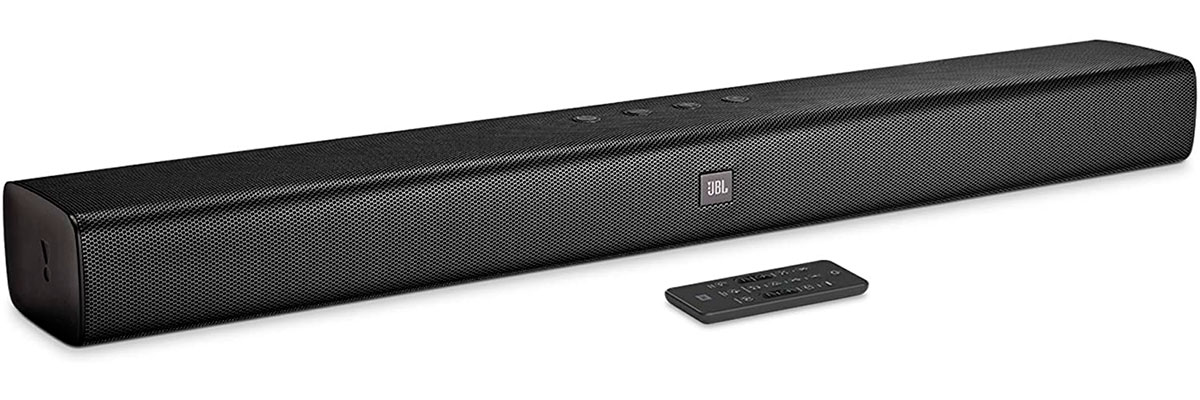
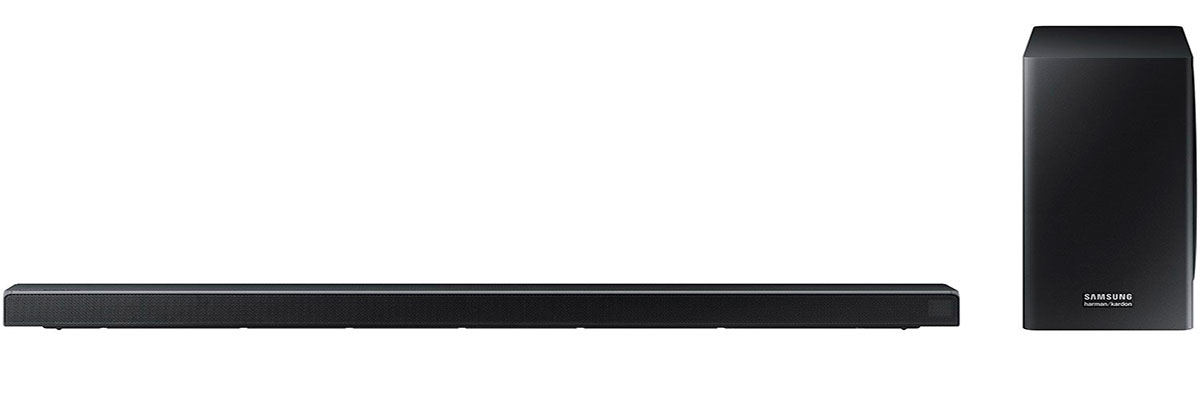
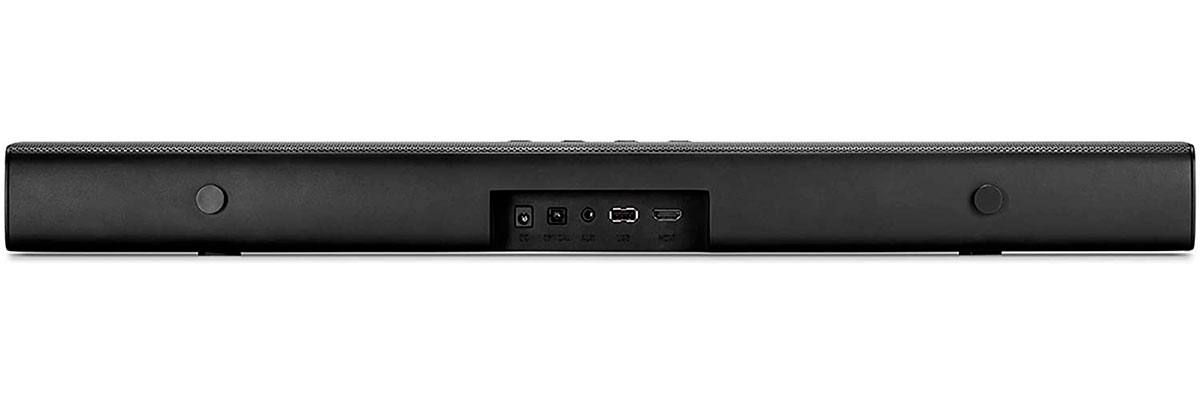
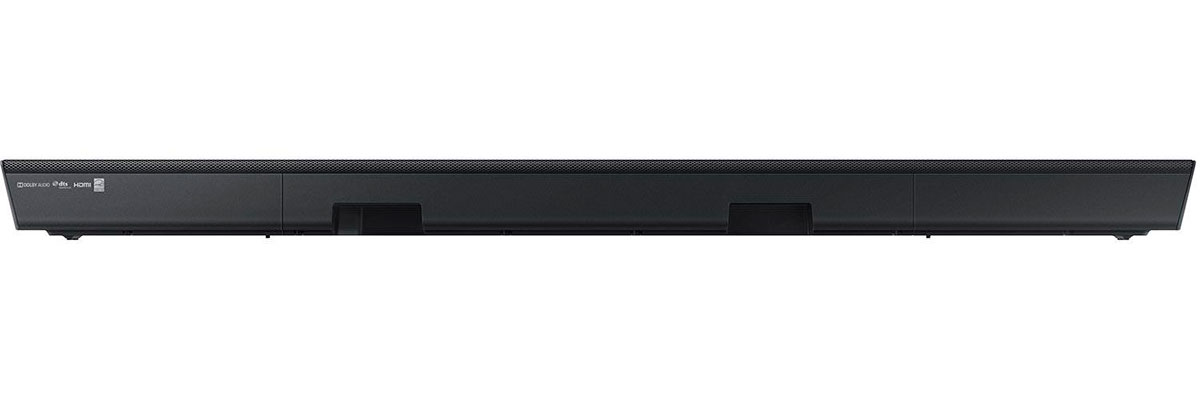
Soundbars SoundStrokes Art comparison rating
- 5JBL Bar Studio
- 5Samsung HW-Q60R
Latest soundbar comparisons
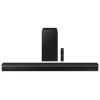

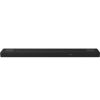
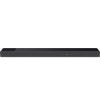
Popular soundbar comparisons

